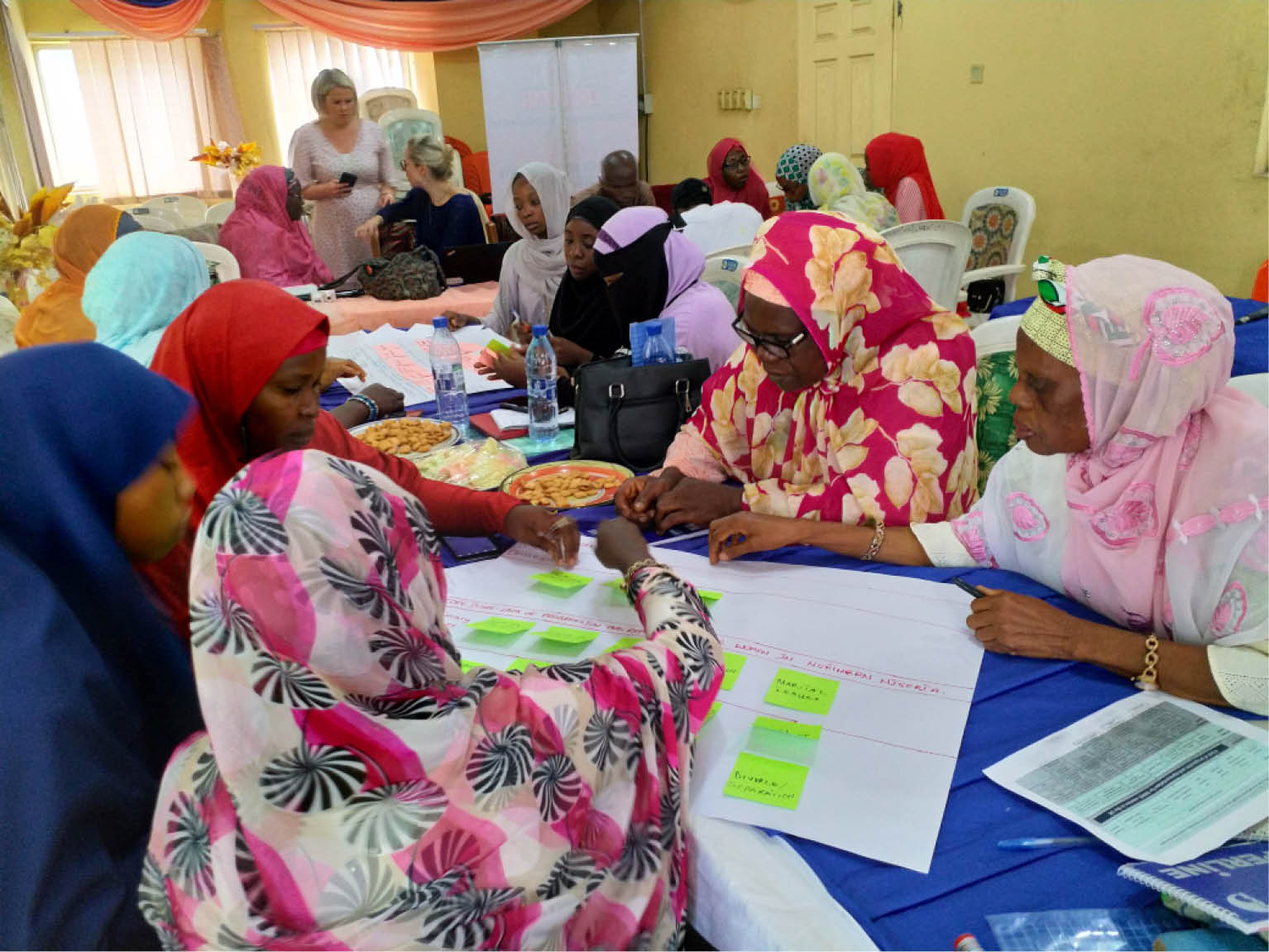Incorporating school safety will address barriers to girl child education — Experts
In the effort to combat challenges to girl child education in Nigeria, experts have agreed that incorporating school safety in the education sector will address the major barriers in the country. Experts at a workshop organised by the Development Research Project Centre (dRPC), in collaboration with the National Institute of Strategic Studies (NIPSS) in Abuja […]

Participants at the Federation of Muslim Women’s Associations in Nigeria (FOMWAN) and Tony Blair Institute for Global Change scoping mentorship programme for girl-child empowerment in Abuja.
In the effort to combat challenges to girl child education in Nigeria, experts have agreed that incorporating school safety in the education sector will address the major barriers in the country.
Experts at a workshop organised by the Development Research Project Centre (dRPC), in collaboration with the National Institute of Strategic Studies (NIPSS) in Abuja for directors of states implementing the Safe Schools Project, emphasised the need to get more girls in school amidst the challenge of insecurity.
- Kidnapped Nollywood stars regain freedom
- Condemnations as NBC fines Trust TV N5m over banditry documentary
The Executive Director of dRPC, Dr. Judith-Ann Walker, said incorporating school safety into the education sector will not only address the issue of lack of infrastructure and funds but address the major barriers to girls’ education in the country.
Dr Walker said the focus of incorporating school safety for girl child education is because research has shown that it is “one of the most trenchant factors that affect girls’ education”.
She said it affects their ability or willingness and commitment of parents/caregivers to continue sending girls to school.
“When they do their own little assessment, they may not want to send their children to school because they do not want their girl child abducted,” she added.
She said the focus of the workshop is to give skills, approaches and techniques so that those who are the duty bearers can think of the plan and operationalize it in a more effective way.
“So for us, incorporating that risk factor into planning and responding to that and training and working with the duty bearers so that they can respond to that as transformative activities, it means when you do this you address the major barriers to girls’ education, not just lack of infrastructure or funds,” she said.
While noting that they will be providing support in collaboration with the NIPSS, she said they have the goodwill and intention to support states in the education sector.
Also speaking, the Director General of NIPSS, Prof Ayo Omotayo, said the education of the girl child is a very big issue in the country where female students are out of school because of security, cultural issues, or perceptions about the girl child.
He said: “It means a huge population is out of the educational sector and that is not good for the development of the country.”
He noted that many communities and governments are not responding appropriately to issues like mining, which are taking children out of school; and not responding to economic hardships after the recession, which are taking students out of classrooms.
Represented by NIPSS Director of Research, Prof. Pam Dung Sha, he said government should be flexible to ensure that the plans are implemented appropriately.
Speaking, the Executive Secretary of the Nigerian Educational Research and Development Council (NERDC), Professor Ismail Junaidu, said addressing the issues should go beyond policy formulation to committed and effective implementation.
“This is where we must think deeper, plan better and build stronger synergy to deliver on policy mandates and provisions,” he stated.
He noted that one of the shortcomings in the policy implementation process is the lack of budgetary provision to facilitate implementation activities, saying, “Where we make policies and do not make provision for the funding, we deceive ourselves. Thus, the next issue we must prioritise in the process of harmonisation is the funding of activities for school safety and security.”
In his remark, the Permanent Secretary, Federal Ministry of Education, David Adejoh, represented by the Director, Senior Secondary School Education, Hajiya Binta Abdulkadir, said COVID-19 and insecurity have impacted girl child education.
“We will strategise well for good planning and we will leave no stone unturned to drive policies to help the girl child. We expect states to key in and comply,” he said.
